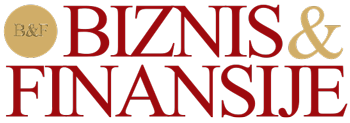The 30th EU-Russia Summit, held in Brussels on December 20-21 highlighted the differences opposing the two partners. These range from the attitude towards Syria, energy policy and human rights, through to Iran, the Arab Spring and trade. All of these subjects were carefully avoided at the dinner on Thursday between Russian President Vladimir Putin, the President of the EU Council, Herman Van Rompuy, and the President of the EU Commission José Manuel Barroso, but they returned to the table – notably energy and trade – on Friday during a meeting with the leaders of the 27 member states.
The mood is made even more oppressive, notes The Guardian, by the fact that Putin seems deaf to Europe’s calls for greater democracy and because the European Parliament adopted a resolution on December 13, calling for an end to persecution, arrest and detention for political reasons.
In the EUobserver, researcher Dan Steinbock says recent trade tension between Brussels and Moscow is likely to strain the meeting, but both sides must overcome their differences and “agree to disagree”. He writes –
In the post-crisis environment, old bargaining positions no longer hold. From the EU standpoint, Russia’s energy power will decline over time. In Russian view, Brussels no longer has either economic might or moral pretext to lecture to Moscow.
He adds that while the EU will remain reliant on Russian energy supplies, recent shale gas discoveries may alter the global balance of energy power, adding –
In the long run, the relative economic and strategic importance of both the EU and Russia will decline in the world economy. The real question is whether Russia or the EU will be the first to embrace the multipolar future – and the requisite tradeoffs.
This view is shared by French daily Le Monde, which says that the Brussels meeting is between „two regions each suffering from an identity crisis“ –
The EU is torn between its peoples’ resentment, exhausted by the crisis, and the need for bold political and budgetary integration. Russia, for its part, is stagnating, tensing up because it does not know where to go.
Le Monde adds that –
supporters of closer ties between the EU and Russia put forth the common interests, the energy cooperation, the crossed investments and the cultural similarities. They pretend not to see the chasm growing between these two bodies concerning values.“ Russia forces Europe to face this question: to what European construction can we aspire if we refuse to protect its foundations?
Mostly, Le Monde notes that „Russia is not the West. And it no longer wants to be.“
The economic crisis in Europe and in the United States has convinced it to seek role models elsewhere. But Moscow remains incapable of defining in positive terms the path it has chosen. The regime sees the world as unstable and dangerous.
